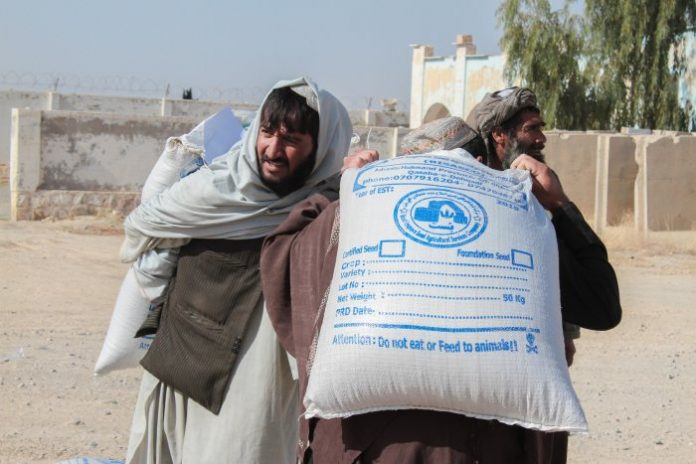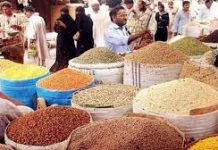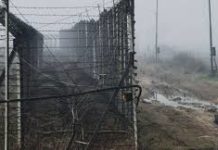Web Desk
The Food and Agriculture Organization (FAO) has welcomed a groundbreaking $65 million contribution from the Asian Development Bank (ADB) to boost food security and support livelihoods of the most vulnerable rural communities in Afghanistan.
The ADB support represents a significant contribution to FAO’s $200 million crisis response programme for 2022 – and beyond – to raise local food production, protect livestock, increase rural incomes and improve the food security of poor and vulnerable people across the country as well as increase the resilience of women and help farm households access markets.
The aim is to achieve this through providing critical agricultural inputs and services, including the distribution of wheat cultivation assistance packages and livestock feed, veterinary support and the provision of vegetable cultivation packages and poultry, as well as small farm equipment and technical training.
The project seeks to reach all of Afghanistan’s 34 provinces, with special emphasis on the major wheat and livestock producing provinces. The interventions will target rural communities experiencing the highest levels of food insecurity, many of which risk the proliferation of negative coping strategies such as selling off vital productive assets and growing displacement pressures.
“We are grateful to the Asian Development Bank for the generous contribution, which recognizes the urgent need to invest in livelihood assistance in rural areas in Afghanistan, and reflects that investing in agriculture is a core humanitarian response,” said FAO Director-General QU Dongyu. “Providing food insecure communities with seeds, fertilizers and other essential agricultural inputs in time for production will help them produce life-saving food and generate income, and is the most impactful way of reversing acute food insecurity in the country”.
With the new funding, FAO will provide crop and livestock inputs, including wheat seeds, fertilizers, to help 150 000 smallholder wheat producing families keep themselves fed, and livestock feed and veterinary support to assist 100 000 marginal livestock holding households. All told, these interventions will generate food and income benefits for over 1.5 million highly food insecure Afghans.
Farmers and livestock owners will also be assisted with technical training and veterinary services through local private service providers to ensure that the inputs provided lead to the best possible production and livelihood gains.
In addition, 140 000 poor food insecure rural households will receive high-quality seeds for backyard vegetable cultivation, poultry and a mix of small farm equipment, enabling them to produce highly nutritious vegetables and poultry, while reducing gaps in local food supply.
Afghanistan has rapidly become one of the world’s largest food security crises. More than half of the population – 22.8 million people – will experience acute food insecurity through March 2022, meaning they face severe challenges in meeting their daily food needs and in keeping their household food security stable and their livelihoods intact. Of this number, 17.8 million people live in rural areas and rely primarily on agriculture for food, income, livelihood and stability. The ongoing drought and economic crisis mean that they lack critical inputs such as seeds to secure their staple food needs for the year, and animal feed to keep livestock alive and supplying milk to their children daily.
The contribution is a part ADB’s larger umbrella project which is worth $405 million and involves four United Nations agencies, including FAO, World Food Programme (WFP), United Nations Children’s Fund (UNICEF), United Nations Development Programme (UNDP). The “Sustaining Essential Services Delivery” project seeks to support Afghanistan’s people by pooling the expertise and added value of the involved UN agencies and addresses shortages of essential services which have been threatening lives and livelihoods of the poor and vulnerable families in Afghanistan. These include the provision of immediate food assistance, health and education services as well as support to agricultural livelihoods aimed to stimulate the economy and sustain local food production.
















